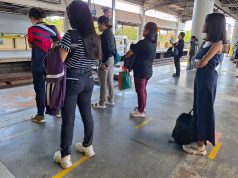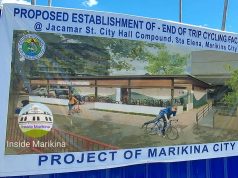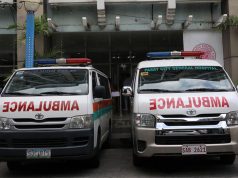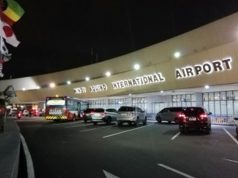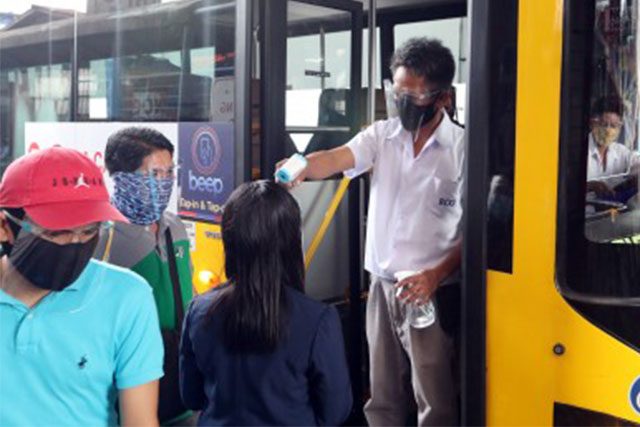
Transportation Secretary Arthur Tugade expressed surprise upon seeing the costs of the Beep cards, but the operator of the card for carousel buses along EDSA said that the transportation department has known it all along.
AF Payments Inc. (AFPI) said officials of the Department of Transportation (DOTr) was present when EDSA Busway was being discussed among operators and prior to the implementation of the cashless transaction scheme.
“Ayoko na lang po magturo kasi hindi po kami ganoon. Pero sa discussion po noong kinokontrata po ang EDSA Busway with the operators, kasama po sa lahat ang DOTr,” Sharon Fong, chief commercial officer of AF Payments, said in an interview.
“At saka nagkaroon kami ng pilot run bago ipatupad ang ‘no Beep card, no ride policy’ na dinesisyunan po ng DOTr na talagang may konting bayad po para sa Beep card,” she added.
Tugade previously suggested he did not know that the company charges commuters a higher fee if the card is purchased without fare load.
Beep cards that were offered in bus stations cost P180 each, with P80 for the card and P100 for the fare load. It has a maintaining balance of P65 as well.
RELATED: Beep card vs BEEP rides: Where to use these cashless cards
“Meron palang ad sila na nagsasabi na kapag walang load, 80 pesos ang babayaran, kung may load, 30 pesos ang babayaran. Sabi ko, bakit ganyan? Ang dapat ho dito, libre,” Tugade said in an interview on Monday.
“Dapat libre lang ang card. We are still under quarantine measures. Workers who have just returned to work are the main users of the rail system and the EDSA Busway. Malaking bagay para sa mga ordinaryong manggagawa ang P30-P50 na ikakaltas para bayaran ang card ng Beep,” he added in an interview last week.
The commuting public also aired their grievances over the fee, since a large number of them are daily wage earners whose income is not enough to secure Beep cards.
This has prompted DOTr to suspend the implementation of the cashless scheme in buses plying Metro Manila’s main thoroughfare two days after its rollout.
A day after the policy was retracted, AFPI announced that it would give 125,000 free Beep cards “to people in need,” a move that was welcomed by the transport agency.
On Wednesday, the Land Transportation Franchising and Regulatory Board ordered public utility vehicle operators and automatic fare collection system providers to waive card fees.
The physical distance policy
The DOTr’s retraction of its newest policy prompted criticisms which point out that it was not the first time the agency walked back its own guidelines. The commuting public should not be treated as living “experiments,” critics said.
“Laban-laban, bawi-bawi. Ganyan din sa social distancing issue. DOTr hindi pinag-iisipan ang mga policies. Ginagawang experiment ‘yung mga hirap na hirap (na) mga ordinary commuters,” a Twitter user said in response to the suspension of the cashless system in EDSA buses.
“URONG-SULONG na gobyerno. ‘Yan naman lagi ang ginagawa nila from the start. Mga programang ‘di pinag-isipan. Mga proyektong minadali na, tinipid pa. Mga policia na walang pinagbasehan kundi mga maling akala,” another online user said.
“I am calling out Duterte and his people in the Department of Transportation—Philippines. Mula sa maling pagbabawas ng distancia sa public transportations hanggang sa pagpipilit sa mga tao na mag-avail ng Beep card na hindi naman centralised to begin with,” he added.
The DOTr previously earned flak for deciding to reduce the required distance among public transport passengers to less than one meter away, even if it was the minimum distance recommended by the World Health Organization.
RELATED: ‘A burden on individuals’: Why doctors are against DOTr’s new physical distancing measures
The transport agency decided to make it 0.75 meters instead, which alarmed Filipinos, including Health reform advocate Dr. Tony Leachon, a former special adviser to the National Task Force Against COVID-19.
The DOTr also planned to eventually ease it from 0.75 to 0.5 meters by September 28 and to 0.3 meters by October.
The agency reasoned that it was done to supposedly increase the ridership of public transport.
The guidelines were later on revoked when President Rodrigo Duterte disagreed with the easement of physical distancing, along with Health Secretary Francisco Duque III.
The virus causing COVID-19 is primarily spread through respiratory droplets that are airborne in enclosed indoor settings with poor ventilation or in settings with recirculated air.
Strictly practicing physical distancing measures is one of the means in mitigating the spread of the pathogen which has a high transmission rate.





